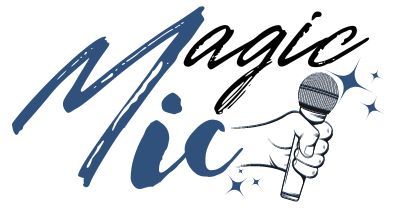USB microphone vs. XLR microphone: Which microphone suits your needs?
Choosing between a USB microphone and an XLR microphone is an important decision that depends heavily on your individual needs and intended use. Both microphone types offer different advantages and disadvantages that should be considered to make the best choice for your audio recordings.
Advantages of a USB microphone
Easy setup
USB microphones are plug-and-play devices that don't require any additional hardware like audio interfaces or mixers. You simply plug the microphone into your computer, and it's ready to use immediately. This ease of use makes USB microphones particularly attractive for beginners or users looking for a straightforward solution for podcasts , video conferencing , or streaming .
Cost
Another advantage of USB microphones is their price . Since they don't require any additional hardware, they are generally cheaper than XLR microphones . If you have a limited budget or are just starting out with audio recording, a USB microphone offers a cost-effective solution .
mobility
Thanks to their simple setup and the absence of additional hardware , USB microphones are extremely portable and ideal for recording on the go or in different locations. This portability makes them a perfect choice for content creators who travel frequently.
Disadvantages of a USB microphone
Limited audio quality
Although USB microphones offer decent sound quality , they don't achieve the same professional audio quality as high-quality XLR microphones . If you're looking for top-notch sound reproduction for demanding recordings, a USB microphone might not be sufficient.
Limited flexibility
USB microphones offer less flexibility in terms of recording settings and options. They often have built-in preamps and converters that cannot be adjusted or replaced, making them less suitable for more complex setups or advanced applications.
Expansion options
If you want to expand your setup , you'll quickly reach the limits of USB microphones . Integrating multiple USB microphones or using them in professional recording situations can be problematic.
Advantages of an XLR microphone
Excellent sound quality
XLR microphones offer superior sound quality , making them the preferred choice for professional audio and video productions . They are less susceptible to interference and provide the clean, clear signal transmission required in demanding studio recordings or live broadcasts .
Flexibility and expandability
XLR microphones offer the flexibility to expand your setup at any time. They are compatible with a wide range of audio interfaces , mixers , and preamps , allowing you to tailor your system to specific requirements. This makes them ideal for professional applications where you need additional features.
Professional application
XLR microphones are the standard in studios , live performances , and broadcasting . They offer advanced features such as phantom power and balanced signal transmission , which are essential in professional environments.
Disadvantages of an XLR microphone
More complex setup
Using an XLR microphone requires additional hardware such as an audio interface or mixer , making setup more complicated and time-consuming. This can be particularly challenging for beginners .
Cost
Purchasing an XLR microphone and the necessary accessories can be expensive. If you have a limited budget , investing in an XLR setup can be a significant hurdle.
mobility
Because of the additional hardware , XLR setups are less portable and less suitable for recording on the go. The need to carry multiple devices can be inconvenient for content creators or podcasters traveling.
Conclusion
Whether you should use a USB microphone or an XLR microphone depends on your specific needs . If you're looking for a simple , inexpensive , and portable solution that's sufficient for basic applications like podcasting , streaming , or video conferencing , a USB microphone is the better choice.
However, if you require the highest sound quality , flexibility , and professional features , and are willing to invest in additional hardware , an XLR microphone is the right choice. Ultimately, you should base your decision on your budget , experience level , and long-term goals .

